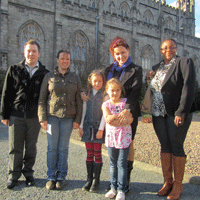DEDICATION OF THE CHAPEL OF ALL THE SAINTS OF IRELAND
PONTIFICAL IRISH COLLEGE, ROME
8 DECEMBER 2010
FEAST OF THE IMMACULATE CONCEPTION
HOMILY BY HIS EMINENCE, CARDINAL SEÁN BRADY
ARCHBISHOP OF ARMAGH AND PRIMATE OF ALL IRELAND
It is a great joy and a privilege to be here today. It is lovely to be here on Mary’s Feast, for she is the Mother and Queen of all saints as we dedicate this lovely chapel to all the saints of Ireland, for the glory of God and the service of God’s people. As I do so, my mind goes back to the origins of the Irish College and I think of the important part which the chapel has played in the lives of the students for almost four hundred (400) years. I am delighted to think that of the nine figures, represented in the apse, three actually were students of the college, St Oliver Plunkett, Blessed Columba Marmion and Father Ragheed Ganni.
It was once said of Dante’s Paradiso that it sings of the eternal happiness of man in vision, love and enjoyment united to his Creator. I dare to say that, in this chapel, we find something of that same eternal happiness in the beatific vision, love and enjoyment of the saints, united to his Creator. I congratulate most heartily all involved in producing the final outcome.
I warmly congratulate the Rector, Mons Liam Bergin, who has planned and carried out this project of renovating the College chapel from the very beginning. I also congratulate the other members of staff, Fr Albert, Fr Billy and Fr Chris who have ably assisted and abetted their leader in this glorious enterprise. I want you to join with me in offering this Mass for Fr Albert’s parents, aunt and uncle who have died in the last six months, as we once again offer him our deepest sympathy on his great loss.
I rejoice with Fr Marko Ivan Rupnik on the excellence of his mosaics. I also congratulate the artists of the Centro Aletti Rome and of Vetrate Giuliani on their outstanding contribution to the beauty and grandeur of this chapel. I am just a little envious of you, the present staff and students, who have such a wondrously beautiful place in which to encounter the living God, the source and origin of all that is good and true and beautiful for meditation, contemplation and inspiration.
To help us consider the part played by the college chapel in the lives of various students I am going to call on four witnesses.
Witness 1:
What part did the college chapel play in the life of Oliver Plunkett? My mind goes back to 1669 – Oliver Plunkett has been appointed Archbishop of Armagh. As he paid his last visit to Santo Spirito Hospital where he used to tend the sick and the dying, a saintly Polish priest, Jerome Mieskow, bade him farewell with these prophetic words,
“My Lord, you are now going to shed your blood for the Catholic faith.” Oliver replied, “I am unworthy of such a favour but help me with your prayers that this desire of mine may be fulfilled.”
Surely his prayer-life as a seminarian, his uniting his suffering to Christ, played a role in the formulation of that desire in the Heart of our Martyr Primate to shed his blood for the Catholic faith? St Oliver’s strong faith and his sacrificing of his life rather than give up his faith are values of perennial worth. He did not run away or abandon his flock.
The college chapel has been in many different places, Via degli Artisti, Via degli Ibernesi, Sant Agatha dei Gothi, Via Santi Quattro and in different shapes and sizes. It was at Sant Agatha where Columba Marmion came in 1877 from Holy Cross College, Clonliffe, who is my second witness.
Witness 2:
No matter where, there was always an altar representing Christ the fixed point of time and space. Blessed Columba Marmion took that lesson to heart, exalting the person of Christ and making Him the centre of the whole spiritual life. Hence we have his writings,
Christ, The Life Of The Soul
Christ In His Mysteries
Christ The Ideal Of The Monk
Come to Christ All You Who Labour, and
Christ The Ideal Of The Priest
Witness 3:
My next witness does not have a name. He represents the various generations of seminarians and priests who have prayed in this very Chapel. Here they discerned what God was calling them to do. Here they prepared to be shepherds, good shepherds, after the model of Christ, the Good Shepherd. They first came here in 1926 when the fledging Irish nation was just emerging from a War of Independence and a bloody civil war and was about to face an economic war. There was a lot of hardship in prospect and plenty of reasons to despair and yet they did not despair. They did not despair because they were sustained by the memory of their glorious history going all the way back to Luke Wadding and Cardinal Ludovico Ludovisi, to Oliver Plunkett and John Brennan and they never lost hope. The prayer life in this chapel surely contributed to that hope.
I have just come from Ireland. It is an Ireland, as you know, where it will be especially difficult this year to see Christmas as a time of peace and joy. Families are under pressure. People have lost jobs, some have even lost houses. The banks are being implored to show to others something of the compassion already shown to them. We face years of hardship.
In that context, in a way, it is a welcome relief to be here to dedicate a Chapel to All the Saints of Ireland, with Christ the Good Shepherd as its wonderful centrepiece. What a marvellous mosaic of the Good Shepherd.
Good Shepherds, that is exactly what we need in Ireland at this time, good shepherds, political and economic good shepherds and spiritual good shepherds. People with the ability to find and seek out “lost sheep”, hoist them on to their shoulders and carry them to safety. Shepherds, with the vision to see a way forward and a sense of the common good. But more importantly we need spiritual Good Shepherds, the kind of people who can say, with conviction, that despite the lack of even a glimmer of positive expectation, their hope remains strong. Yes, that hope definitely remains strong because ultimately it is a hope that comes, not from ourselves, but from God, from a God who alone is good, almighty and loving.
That hope includes the expectation for a better future. The recession won’t last forever – yes, we may face years of hardship but hope is the capacity to see God in the midst of trouble and to be co-workers with the Holy Spirit and others to find a way out of the trouble. The others I have in mind are those brilliant, creative, dedicated, men and women, with a sense of the common good and the vision to find a way out of the morass. From this vision can certainly come the strength to be steadfast and the tenacity to hold fast and the will to work to change the reality in which we find ourselves. Hope above all means not succumbing to the prophets of doom and negativity who, when all is said and done, have nothing to offer.
Hope is the gift by which God provides us with, what we could never achieve on our own. Precisely because it is a gift, we should ask for it, for everybody, not just for ourselves.
Right now, not only Ireland but the world needs Good Shepherds, the kind of Good Shepherd who can lead his flock into those places where the encounter with the living God takes place and where the salvation promised to all of us truly becomes a reality. This lovely Chapel is just such a place where those who pray here are invited into the bosom of God, from whom all comes and to whom all returns.
I am told that the key to understanding this marvellously renovated Chapel is the belief that the prayer of the Christian community gathered here on earth is one and the same as that of the Communion of Saints in heaven. The conviction that when the College community gathered for prayer, it joins with the glorified Lord, and our Lord and all the saints in praising God is fascinating.
Witness 4:
My final witness is Father Ragheed Ganni, who is featured on the extreme right of St Brigid. He is depicted without a halo but holding the palms of martyrdom. Born in 1973, Ragheed became an engineering graduate from the University of Mosul in Iraq. He became a student of the Irish College in 1996, was ordained a priest in 2001 and celebrated his first Mass in this Chapel.
During his seven years as a student he spent many summers in Ireland, working in various places, especially the pilgrimage island of Lough Derg, Co Donegal in the diocese of Clogher. Father Ragheed went back to his native Mosul. He was appointed to a parish where he, and his family, received many death threats; his house and Church were often attacked. Ragheed insisted on staying to make sure his people had the Eucharist and pastoral care. On 3 June 2007, he, and three Sub-Deacons were murdered. The relics of St Oliver, wrapped in Father Ragheed’s stole, will be placed in the altar. They are put there to remind us that the life of grace is received from God, made man in Christ Jesus.
My mind also goes back to 1960 – 50 years ago when I myself first set foot in this chapel, as a student of First Theology. To tell the truth, I sometimes feel a little bit like Oisin, back from Tir Na Nog – when I think of those far off distant Pre Vatican II days – of soutanes, sopranos and ferraiolas; of tonsured heads and cameratas and yet, yes many things have changed, but only superficially. The underlying realities remain the same. They are well captured and expressed in the motifs of this refurbished Chapel.
• Jesus crucified,
• John the Baptist beheaded,
• Oliver Plunkett hung, drawn and quartered,
• Ragheed Ganni shot dead with three sub deacons.
• Mary, the Mother of Jesus, whose soul was pierced with the sword of suffering.
• St Patrick calumniated and harassed by his enemies.
• Columbanus, no stranger to conflict and opposition.
What sustained them all through their trials and tribulations?
What have they in common?
Their union with Jesus Christ.
I am glad St Brigid gets such a prominent place, the Mary of the Gael and that her cloak is included at her feet. It reminds us of her monastery at Kildare. There she made her foundation where she was able to express her love of God in her hospitality to the stranger and her care for the poor. That also is a vital part of the work of every Good Shepherd.
It is Mary’s Feast and she is there at the place of honour, at her son’s right hand, looking at Him and looking at us, pointing us towards Him in the time-honoured pose of prayer of intercession. May she always be venerated in this place and may she always remind all of us to do whatever Jesus tells us. Then all of us will be Good Shepherds, not only in word but in reality as well. Mary said to the Angel: “Let what you said be done”. It is not an easy prayer to make. Jesus prayed it himself in Gethsemane. It raises issues of trust and surrender for all of us.
I once heard it said that the most important piece of furniture in any Church is the presence of believers at prayer. I invite you all then to spend a lot of time here. Like the saints, fix your gaze on Christ. “In Jesus Christ who allowed his heart to be pierced – the true face of God is seen” as Pope Benedict told the young people in Cologne.
In Jesus we contemplate beauty and splendour at source….the truth of God’s love in Christ encounters us, attracts us, delight us. Tonight we give thanks and praise to God for the beauty and splendour to be seen here, leading us to contemplate Beauty itself. AMEN




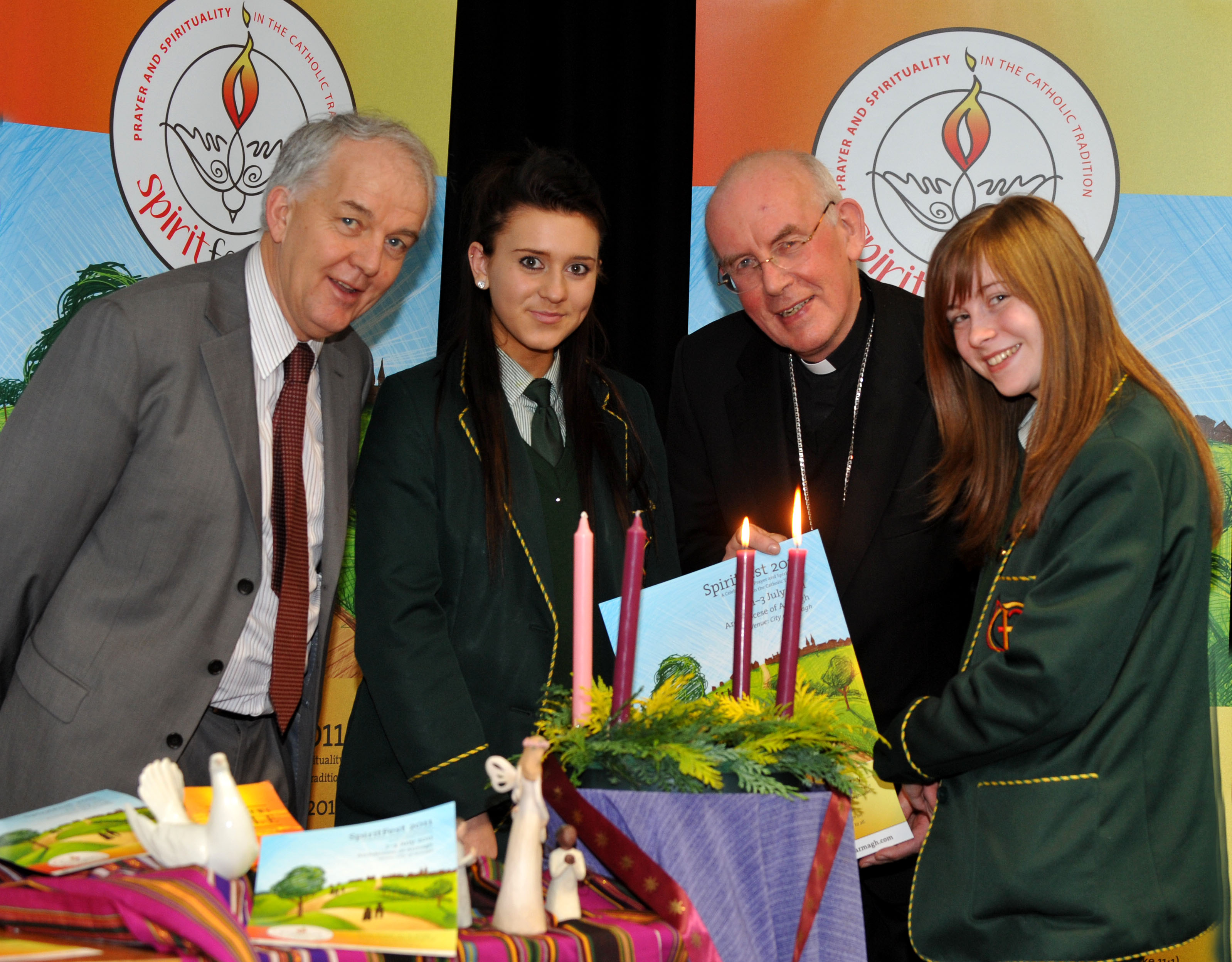
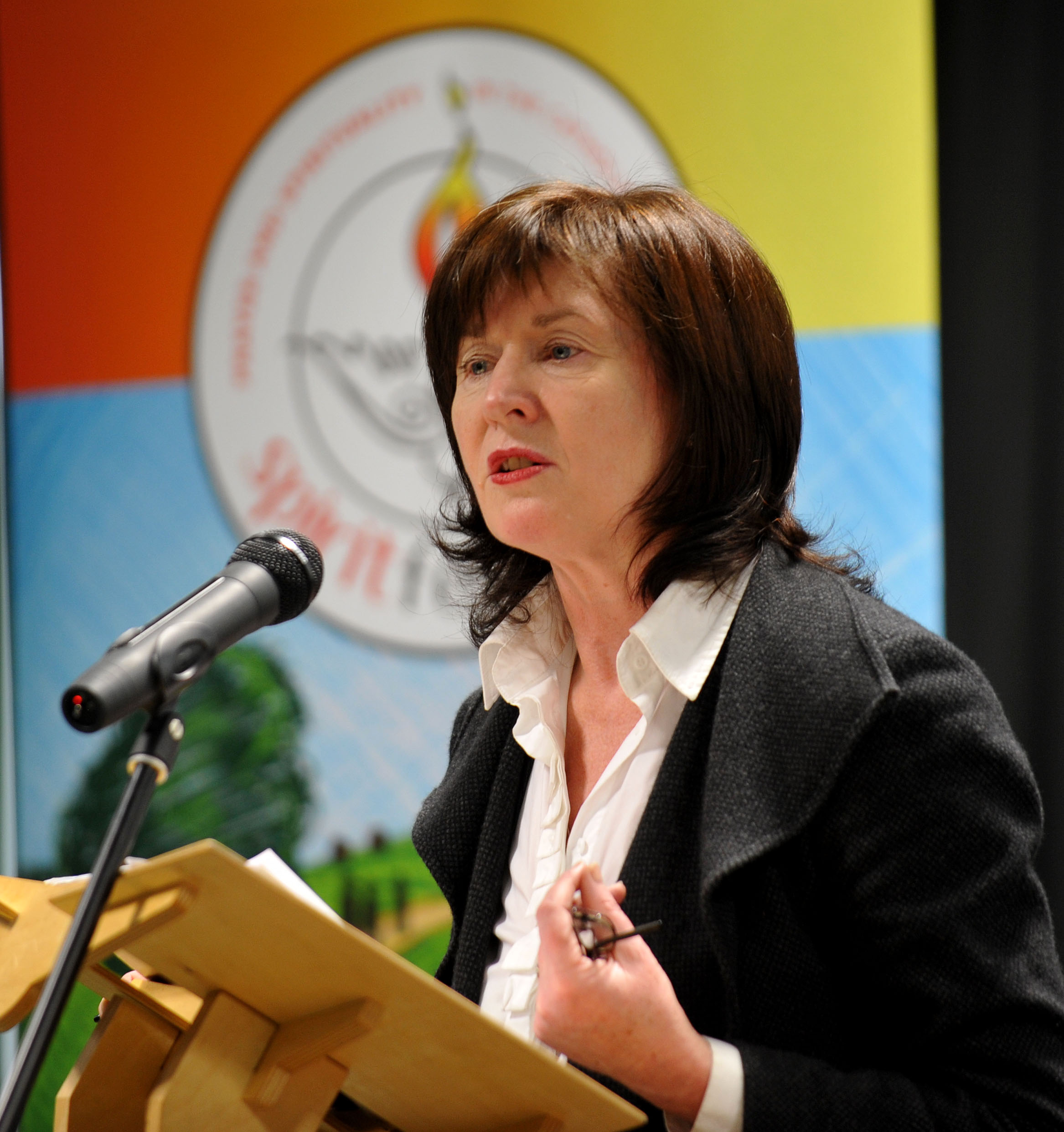 Armagh and will be a precursor to the World Youth Day in Madrid next August and the Eucharistic Congress taking place in Dublin in 2012. The three-day gathering of priests, religious and laity next summer is being organised by the Armagh Diocese to celebrate and nurture the rich legacy of prayer, which is central to the Catholic tradition.
Armagh and will be a precursor to the World Youth Day in Madrid next August and the Eucharistic Congress taking place in Dublin in 2012. The three-day gathering of priests, religious and laity next summer is being organised by the Armagh Diocese to celebrate and nurture the rich legacy of prayer, which is central to the Catholic tradition.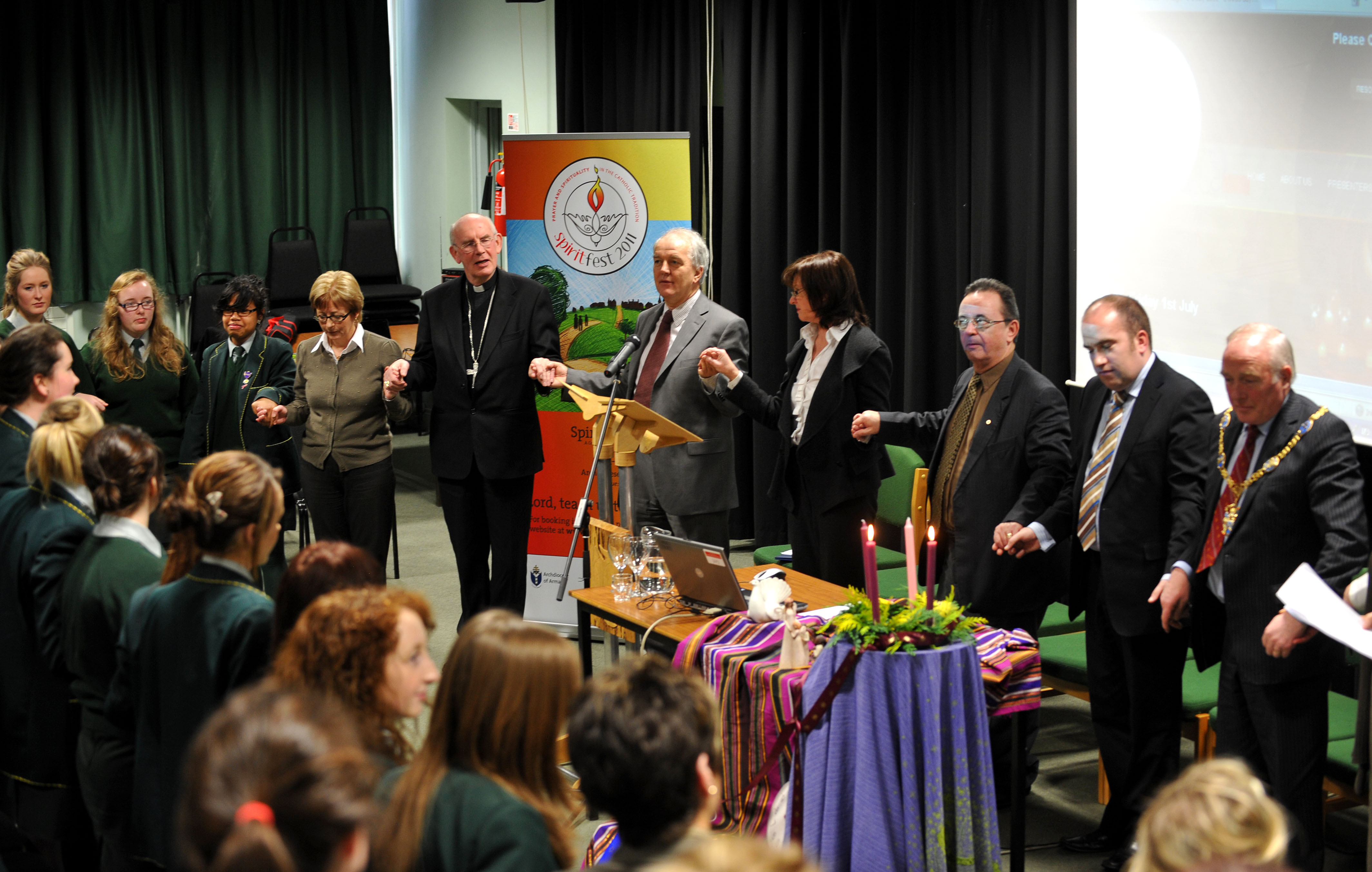 The purpose of Spiritfest 2011 is to encourage people, prompted by the Spirit, to deepen their relationship with Christ through prayer by providing them with insights into the deep Christian tradition of prayer and by offering them experiences of prayer in its different forms.
The purpose of Spiritfest 2011 is to encourage people, prompted by the Spirit, to deepen their relationship with Christ through prayer by providing them with insights into the deep Christian tradition of prayer and by offering them experiences of prayer in its different forms.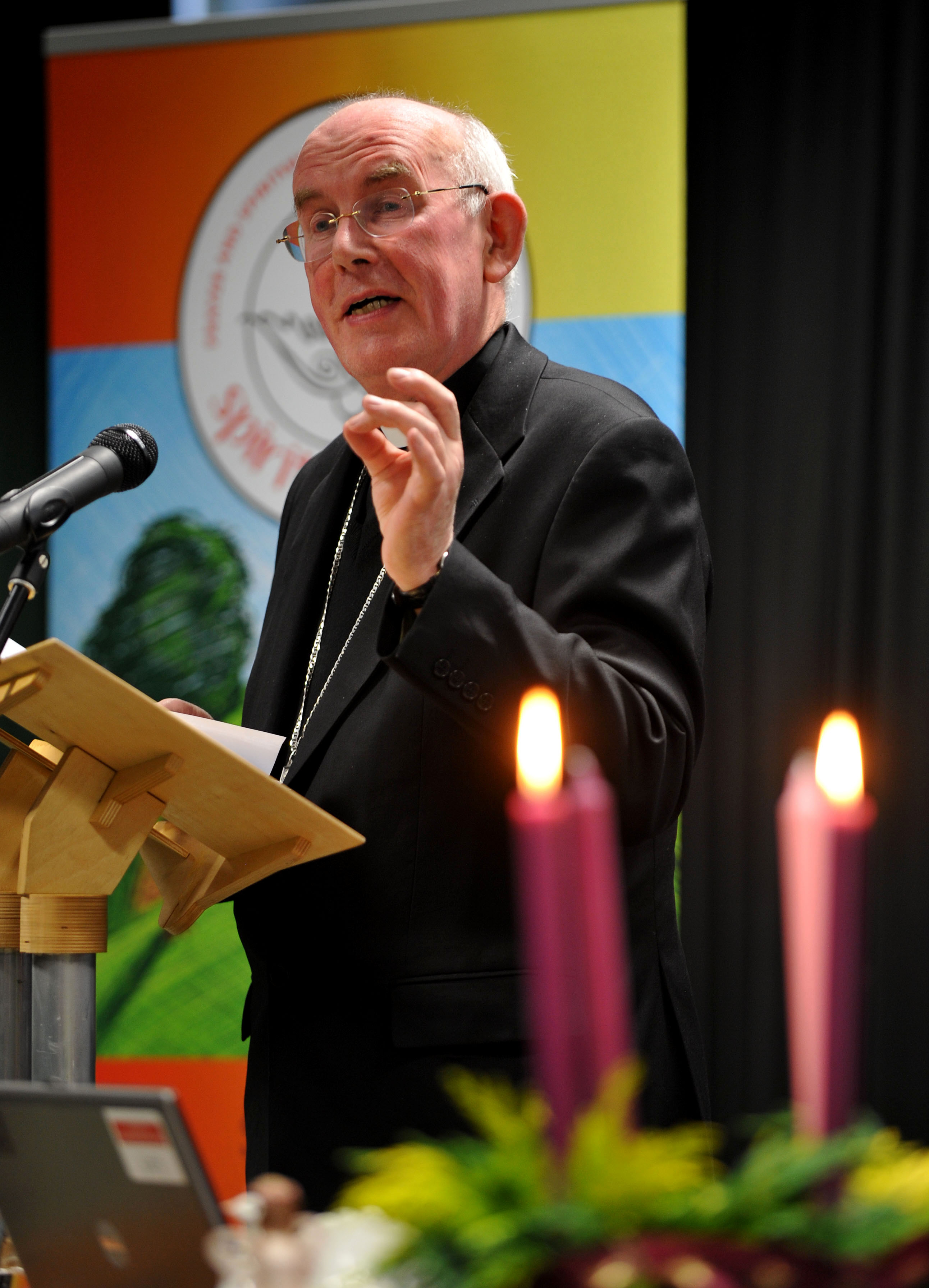
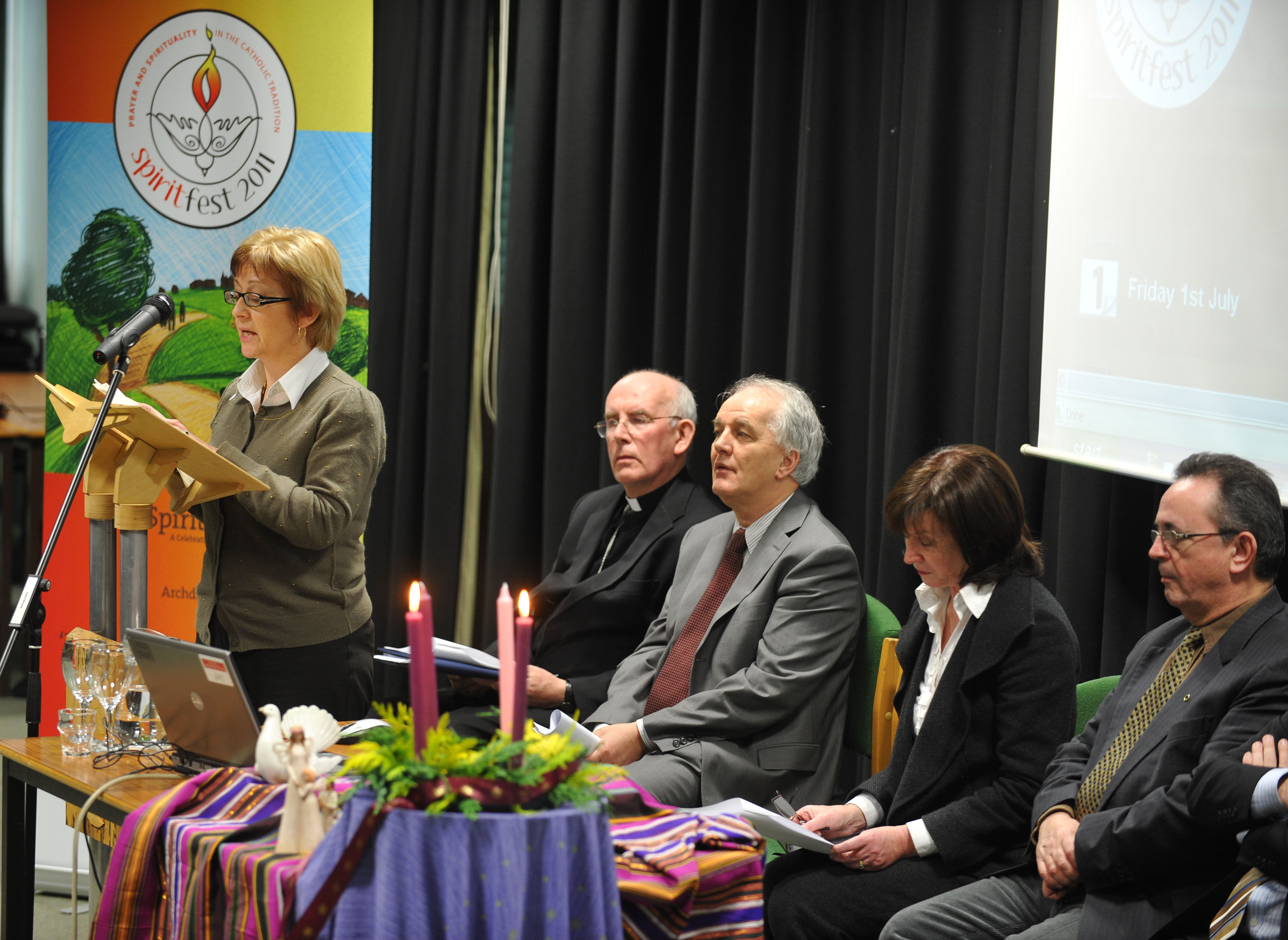 Speaking today Dr Hanna said he had the privilege of participating in the conference along with Fr Andrew McNally and thousands of people from across Australia and New Zealand.
Speaking today Dr Hanna said he had the privilege of participating in the conference along with Fr Andrew McNally and thousands of people from across Australia and New Zealand. 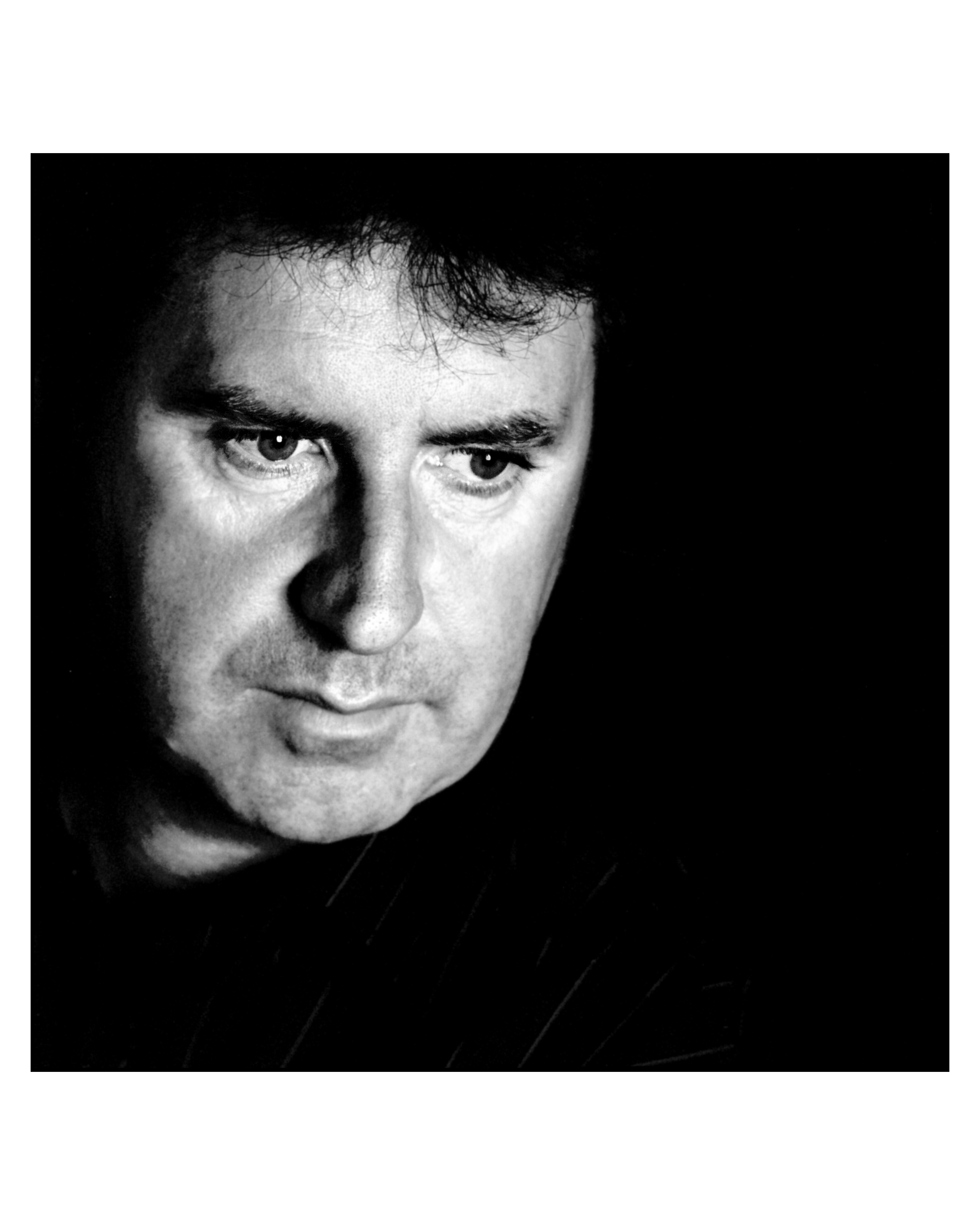
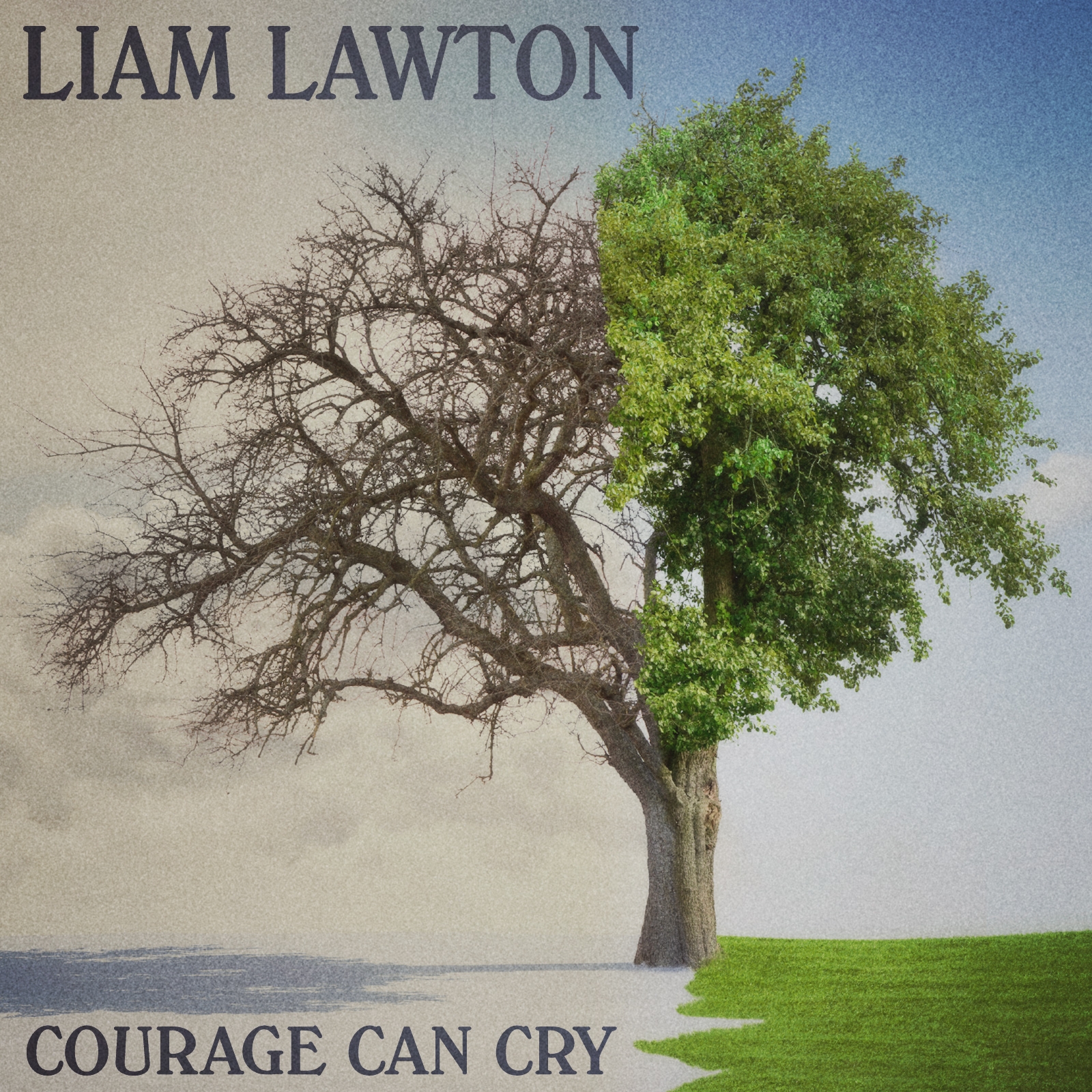 COURAGE CAN CRY
COURAGE CAN CRY